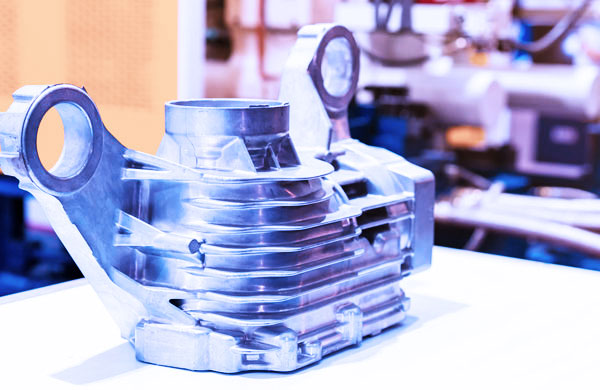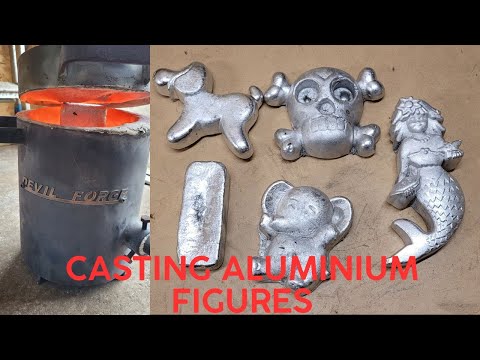The Best Guide To Stahl Specialty Company
The Best Guide To Stahl Specialty Company
Blog Article
Indicators on Stahl Specialty Company You Need To Know
Table of ContentsThe Greatest Guide To Stahl Specialty CompanyStahl Specialty Company for BeginnersThe Main Principles Of Stahl Specialty Company Some Known Incorrect Statements About Stahl Specialty Company Stahl Specialty Company Fundamentals Explained
Chemical Contrast of Cast Aluminum Alloys Silicon advertises castability by decreasing the alloy's melting temperature and boosting fluidness during casting. In addition, silicon contributes to the alloy's stamina and put on resistance, making it valuable in applications where resilience is vital, such as automotive parts and engine parts.It also enhances the machinability of the alloy, making it much easier to process right into ended up products. In this way, iron adds to the total workability of light weight aluminum alloys. Copper enhances electrical conductivity, making it helpful in electric applications. It likewise boosts corrosion resistance and contributes to the alloy's general strength.
Manganese adds to the toughness of aluminum alloys and boosts workability. It is frequently used in wrought light weight aluminum products like sheets, extrusions, and profiles. The presence of manganese help in the alloy's formability and resistance to breaking during construction procedures. Magnesium is a light-weight component that gives strength and impact resistance to light weight aluminum alloys.
It allows the manufacturing of light-weight parts with exceptional mechanical homes. Zinc boosts the castability of aluminum alloys and helps manage the solidification procedure during spreading. It enhances the alloy's strength and firmness. It is usually located in applications where detailed forms and fine information are necessary, such as decorative spreadings and particular automobile parts.
The Best Strategy To Use For Stahl Specialty Company
Since aluminum-silicon alloys have excellent casting homes, high gas properties, easy processes, and superb deterioration resistance, aluminum-silicon alloys are most generally made use of in the die-casting industry in the house and abroad. At the exact same time, aluminum-silicon alloys are also fairly early and extensively acknowledged alloys established and utilized in die-casting. After continuous research and renovation, most of the existing global mainstream aluminum-silicon alloys have been wrapped up and are nothing greater than A356, A360, A380, ADC12, B390, and A413.
The primary thermal conductivity, tensile strength, return toughness, and elongation vary. Select ideal basic materials according to the performance of the target item generated. Among the above alloys, A356 has the greatest thermal conductivity, and A380 and ADC12 have the least expensive. The tensile restriction is the opposite. A360 has the finest return toughness and the highest possible elongation price.

The Best Guide To Stahl Specialty Company
In accuracy casting, 6063 is fit for applications where intricate geometries and top notch surface finishes are vital. Instances include telecommunication enclosures, where the alloy's exceptional formability permits smooth and visually pleasing styles while keeping structural stability. Similarly, in the Lights Solutions sector, precision-cast 6063 components develop stylish and reliable lighting components that require complex forms and good thermal efficiency.
(https://www.behance.net/franceshoward2)
It leads to a better surface finish and much better deterioration resistance in A360. Furthermore, the A360 displays premium prolongation, making it optimal for complex and thin-walled components. In precision casting applications, A360 is fit for sectors such as Customer Electronic Devices, Telecommunication, and Power Devices. aluminum foundry. Its enhanced fluidity permits elaborate, high-precision parts like smart device cases and communication tool housings.

In precision casting, light weight aluminum 413 radiates in the Consumer Electronic Devices and Power Tools industries. This alloy's superior corrosion resistance makes it an outstanding option for outside applications, ensuring lasting, long lasting products in the mentioned industries.
Stahl Specialty Company Fundamentals Explained
As soon as you have determined that the aluminum pass away casting process appropriates for your task, an essential following action is choosing on one of the most proper alloy. The aluminum alloy you select will considerably influence both the spreading process and the properties of the last product. Due to this, you must make your choice thoroughly and take an informed approach.
Figuring out the most suitable light weight aluminum alloy for your application will mean evaluating a vast array of qualities. The initial classification addresses alloy qualities that influence the manufacturing procedure.
The alloy you select for die spreading directly affects a number of elements of the spreading process, like how simple the alloy is to collaborate with and if Web Site it is susceptible to casting problems. Hot cracking, likewise called solidification fracturing, is a normal die spreading problem for light weight aluminum alloys that can result in inner or surface-level rips or fractures.
Things about Stahl Specialty Company
Specific light weight aluminum alloys are much more prone to hot breaking than others, and your selection ought to consider this. Another usual defect located in the die spreading of light weight aluminum is pass away soldering, which is when the cast stays with the die wall surfaces and makes ejection hard. It can damage both the actors and the die, so you should seek alloys with high anti-soldering buildings.
Corrosion resistance, which is currently a noteworthy characteristic of light weight aluminum, can vary considerably from alloy to alloy and is a crucial particular to take into consideration depending on the environmental conditions your product will be revealed to. Wear resistance is one more building commonly sought in light weight aluminum items and can separate some alloys.
Report this page